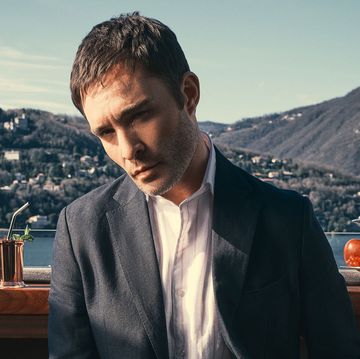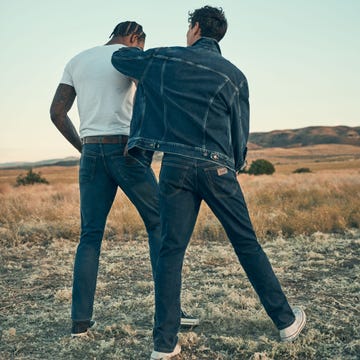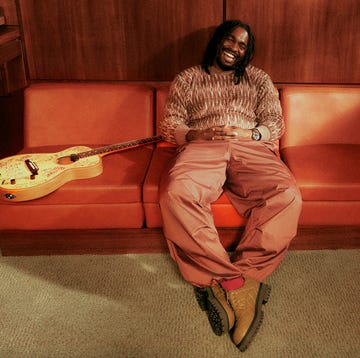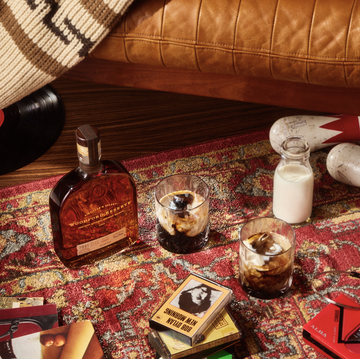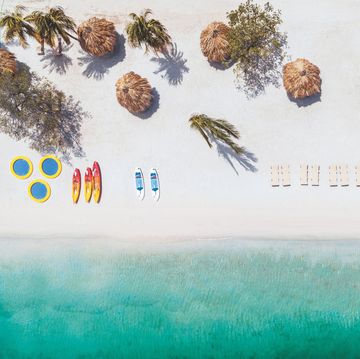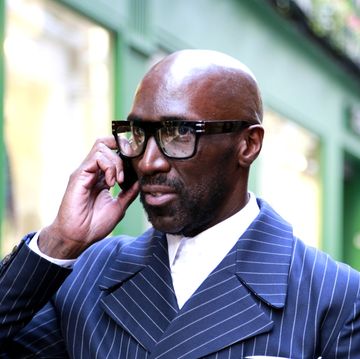What is the most you would spend on a bottle of fine whisky? In 2019, one connoisseur paid an impressive £1.5 million at Sotheby’s for a bottle of The Macallan Fine & Rare, distilled in 1926 and bottled 60 years later — making it the world’s most valuable bottle of wine and spirit sold at auction (overtaking, incidentally, one of its sister bottles from the same barrel).
It’s a remarkable story about a remarkable whisky, and a narrative told in a short film. The Spirit of 1926 covers a pivotal moment in the history of The Macallan distillery, which still creates the finest whisky at its Speyside base. It documents Janet “Nettie” Harbinson taking the reins at The Macallan a century into its existence, and through her passion, determination and love, ensuring the continuing production of the fine whisky we enjoy today.
The eight-minute film follows Harbinson from her time working alongside her husband Alexander, managing director of The Macallan. After Alexander’s sudden death, Harbinson has a choice to make: relinquish her husband’s beloved distillery or gather her courage and do it herself.
Harbinson is urged to be sensible by her lawyer, who holds out a cheque to buy the distillery from her and place a man in her seat. But she knows that worthwhile things rarely come easily. Holding fast to her conviction that her place is at the distillery, she turns him down and takes on the business herself. “It’s never too late to be what you might have been,” she tells her friend Gertie.
It was that “courage in the face of grief”, as director Mike Newell puts it, which makes Harbinson and her story so compelling. She finds the drive to pour herself into creating The Macallan — which will become the most prized and sought-after whisky in the world — while always walking beside her lost husband.
Much like The Macallan whisky itself, The Spirit of 1926 is a product of uniquely Scottish ingredients. Scriptwriter Allan Scott, co-creator and writer of Netflix mega-hit The Queen’s Gambit and horror classic Don’t Look Now, was the only choice to pen The Spirit of 1926 — Harbinson was his great-aunt. “She went around the community looking after people, helping people, seeing if there was anything she could do,” he says. “She was that kind of person.”
Her story felt like one that needed to be told: “Once you got the notion of a woman wanting to be part of the world of business and her determination, that’s a big message for today.”
To evoke Harbinson’s world, Scott and the team pulled together the best Scottish creatives from across the arts. Simple Minds created a soundtrack worthy of Harbinson’s life: soulful yet powerful, and evocative of the beautiful landscape in which the film is set. It is, says Simple Minds singer Jim Kerr, “a film that seemed to have heart and soul to it, a film with a beautiful landscape, a film that obviously struck a chord with us being Scottish. But, of course, in the end, it is an amazing brand.”
Recreating Scotland in the Twenties demanded incredible attention to detail (plus, one beautiful vintage Bentley powering through the Speyside countryside). That detail carries through to the costumes worn by Emily Mortimer, who plays Harbinson, and the rest of the cast. The creations of renowned Scottish designer Christopher Kane, who has built a career on melding tradition with innovation, combined classic tweeds with pieces from his own, more contemporary archive. It was that thread of The Macallan’s history that appealed. “Hearing Nettie’s story, I was immediately intrigued,” he says. “She was such a modern thinker for her time.”
Of course, The Macallan’s appeal reaches far beyond Scotland, and collaborators from across the UK were inspired by Harbinson too. Sir Jonathan Pryce narrates, and Emily Mortimer takes on the lead role. For her, The Spirit of 1926 is a hymn to a woman who found her vocation in keeping her deceased husband’s work alive, and gave something back to the world in the process. “It’s about holding on to the memory of someone that you really love,” she says.
Newell, director of some of the finest British films of the last 30 years — Four Weddings and a Funeral, Donnie Brasco, Mona Lisa Smile to name a few — brings his own particularly unique, warm touch.
“Nettie was courageous and emotionally very free,” he says. “The story is all about that. It is why she does what she does at every step. She never gave up on making the stuff that she made good and that became part of the DNA of the company.”
It was her passion for excellence — which still informs The Macallan whisky today — that Newell says was so fascinating to him as a filmmaker. Meanwhile, Mortimer was drawn to the meticulousness and community spirit that Harbinson ensured became so much a part of The Macallan’s brand.
“There are some people who take what they do very seriously and care, not just about the product they’re producing but about the people who work for them and what they are adding to the world,” she says. “There’s something about that whisky, made under her watch in 1926, that symbolised the heart of the company and what The Macallan whisky was all about.”
What looked, in 1926, like it might be the end of The Macallan instead became just a new chapter in its distilling story — and is still the defining moment in the modern history of the brand.

